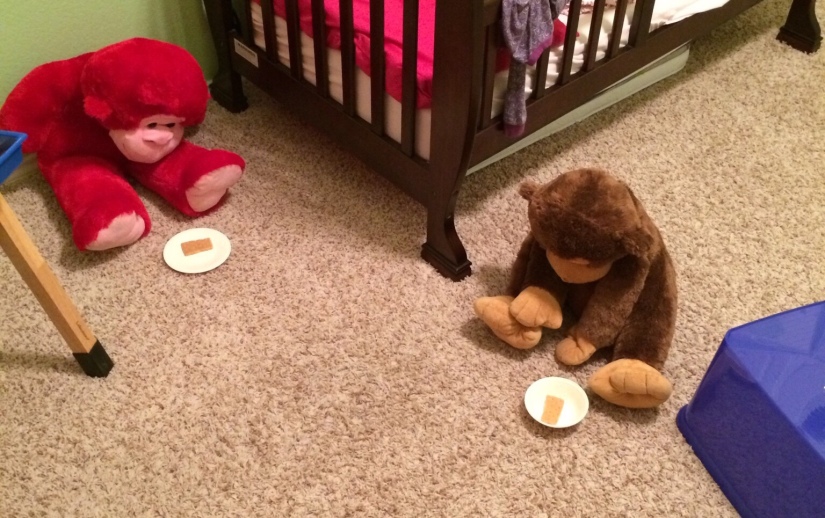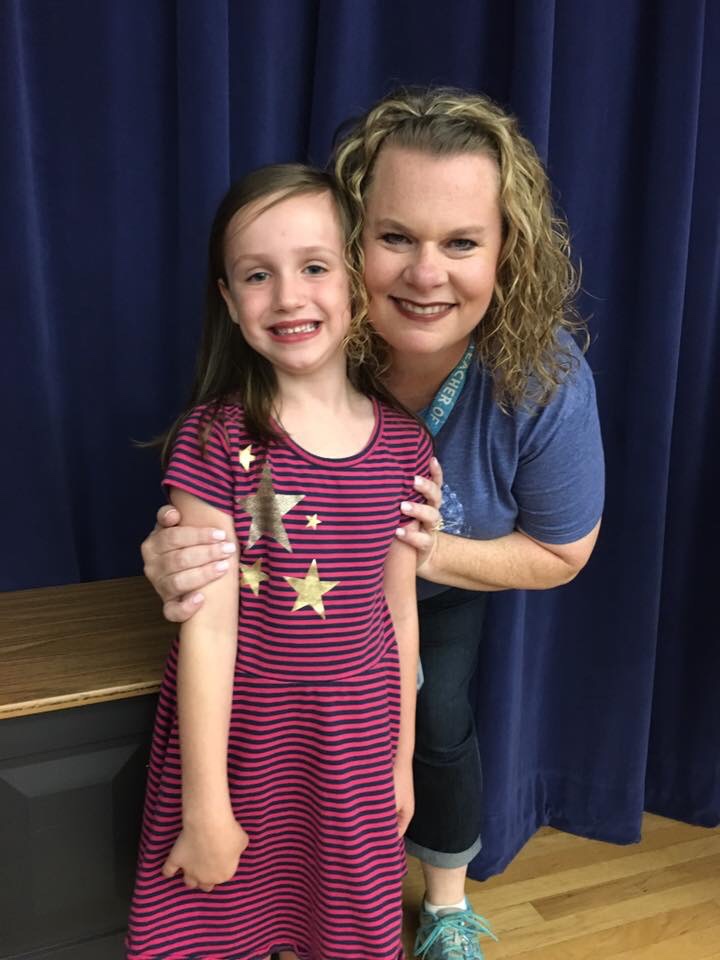Mom! Do you think before I was born, I asked God to make me sensitive? No! He just made me this way. So stop telling me not to be so sensitive, I can’t help it. It makes me feel like I’m not a good person and you don’t love me.
From a very young age, we knew that our daughter was smart. She could carry on a full conversation with adults when she was two. When she was three, she would come home from school and fully reenact her day by teaching her classroom of stuffed animals; feeding them snacks, changing their diapers and tucking them in for naps. If we wanted to know what was going on at school, we’d just observe Avery’s “classroom” in the evening. Friends, family and teachers constantly remarked about her ability to understand the world around her and communicate about it.

At the same time that Avery was impressing everyone with her intellect, I started to notice some significant differences from her peers in social settings. We started attending friend’s birthday parties as the kids in the class each turned three. In this setting, I noticed that she didn’t clamor towards activities like all of her friends did; she preferred to sit on the sidelines and observe. When we started to sing Happy Birthday, she’d cover her ears and cry as others sang as loud as they could. I didn’t want to coddle her or have her miss out on fun experiences (and I am ashamed to admit that I was also embarrassed that my child wasn’t behaving like all of her friends), so I encouraged her to conform and join the others in playing pin-the-tail on the unicorn or running around the play space and singing. I quickly realized that this didn’t produce the results I was hoping for.
So she was different. So what? She was smart, responsible and a rule follower. My husband and I learned what made her tick and we parented accordingly. No big deal, right? Wrong!
How do you explain to the revolving door of pre-school teachers that your daughter has a literal interpretation of the world? That if you jokingly ask her, “Can I take you home with me?” That she will actually worry that you are going to bring her home and she won’t get to see her parents again? How do you explain to them that if you correct her too harshly that you are crushing her tiny little soul and eliminating all of her self-esteem? That she will feel unloved? There were days when I wanted to lock her in a tiny little bubble to protect her from the world.

When Avery started kindergarten, her teacher and her gymnastics coach (who is a special education teacher in a nearby school district) both suggested that we have her tested for giftedness. So we did. In January of that year we found out that she was one of two kindergarteners who had placed into the GT, or Gifted and Talented program at her elementary school.

I grew up in a state that doesn’t provide gifted and talented support in public schools, so I had very little idea of what these test results indicated or what to expect from the programming. What I learned was this: the personality traits that we thought made Avery Avery, were actually traits associated with gifted children across the world and quite a bit of research has been done to identify and meet their unique intellectual, social and emotional needs. Through the school’s GT Lead Specialist, I was able to plug into Supporting & Advocating for Gifted Education(SAGE), the Texas Association for the Gifted and Talented (TAGT) and Supporting the Emotional Needs of the Gifted (SENG), where I learned about asynchronous development, overexcitabilites and the alarmingly high rates of anxiety, depression and suicides in gifted children.
So when my my seven-year-old daughter explained to me, with her bright blue eyes red-rimmed with tears that flowed freely down her cheeks, that she never asked to be made so sensitive and instructing her to “be less sensitive” made her feel like I didn’t love her, I wanted to crawl under the table we were sitting at on our back deck and disappear. Because I know better. I have absorbed so much research over the past two years and I know that the typical parenting rules don’t apply to gifted children. Gifted children require as much support and resources as children with special needs, because they are so different; the traditional approaches to intellectual and social development don’t apply. We will spend the next eleven years of Avery’s life helping her to understand what makes her unique and how to navigate a world that doesn’t always understand her.

But we’re lucky. We’re lucky because when Avery met her kindergarten teacher for the first time, she bent down to her and said, “Can I tell you a secret? It’s ok to be nervous. I get really nervous on the first day of school too.” We’re lucky because that same teacher was trained to recognize the traits of gifted children and was able to recommend that we get Avery into the GT Lead program at the school. We’re lucky because Avery’s second grade teacher has been working with gifted children for years and has received a significant amount of training in this area. She goes above and beyond the call of duty to to meet Avery’s intellectual needs (giving her third grade math homework) and emotional needs (letting her lead their book club and yoga exercises). We’re lucky that there is a community of support for our family as we go on this journey together.
Shared from Harmonie’s blog post, “Raising a Gifted Child.”
https://workingmom.life/2018/12/19/raising-a-gifted-child/
